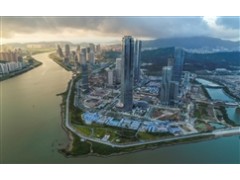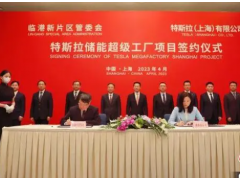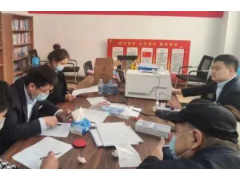The accumulated investment in fixed assets has exceeded 1 trillion yuan, with an annual average of more than 130 billion yuan; the GDP of the three platforms of Hengqin, Qianhai, and Nansha has more than doubled; the cumulative number of new enterprises has exceeded 260,000, and the actual use of foreign capital has reached nearly 50 billion yuan U.S. dollars; the annual foreign trade volume exceeds 500 billion yuan, with an average annual growth rate of more than 25% in the past three years...China (Guangdong) Pilot Free Trade Zone (hereinafter referred to as "Guangdong Pilot Free Trade Zone") has been established for 8 years and has insisted on system innovation as the core , and achieved remarkable results in promoting high-level opening up and high-quality development.
"In the next step, Guangdong will implement the promotion of the Guangdong Free Trade Pilot Zone from five aspects: improving the level of institutional opening, enhancing the function of the international trade shipping hub, enhancing the function of the demonstration window of financial opening and innovation, improving the level of modern industrial agglomeration and the level of in-depth cooperation between Guangdong, Hong Kong and Macao. strategy.” On June 7, Zhang Jinsong, director of the Guangdong Provincial Department of Commerce and director of the Free Trade Office, said at the “High-quality Development in Guangdong” series of theme conferences held by the Information Office of the Guangdong Provincial Government.
The function of the international trade gateway hub is outstanding
On May 31, the Guangdong-Hong Kong-Macau ro-ro route was officially opened, and Guangzhou added another foreign trade ro-ro route. The route is operated by the car ro-ro ship "Guangang Automobile 01" invested and built by Guangzhou Port. The ship has a total length of 69.8 meters and has a total of 4 car loading decks, which can carry about 220 small commercial vehicles.
At present, Guangzhou is concentrating on building an international automobile trade center. In the first quarter, the number of new energy vehicles exported by Nansha Automobile Port exceeded that of last year. In the first four months of this year, Nansha exported 72,000 vehicles, an increase of 93.2%.
"Guangdong Pilot Free Trade Zone is benchmarked against international advanced free trade zones, creating an efficient and convenient customs clearance system, with outstanding functions as an international trade gateway hub." Zhang Jinsong said.
Data shows that in the past three years, the total import and export volume of the Guangdong Pilot Free Trade Zone has continuously exceeded 200 billion yuan, 300 billion yuan and 500 billion yuan, with an average annual growth rate of over 25%. In the first four months of this year, the import and export scale of the Guangdong Pilot Free Trade Zone was 179.11 billion yuan, a year-on-year increase of 22.3%.
In 2022, the container throughput of the Guangdong Pilot Free Trade Zone will exceed 32 million TEUs, and the cargo throughput will reach nearly 500 million tons, accounting for 45.4% and 24.4% of the province's total respectively.
Nansha and Qianhai have been approved as national import promotion innovation demonstration zones, and new business forms such as cross-border e-commerce, transit and consolidation, offshore trade, and bonded refueling have developed rapidly, forming bulk commodities such as airplanes, automobiles, electronic components, natural gas, and grain. Distribution centers and import platforms. In 2022, the import and export of cross-border e-commerce parcels at Nansha Port in Guangzhou will exceed 100 billion yuan for the first time, a year-on-year increase of 3.3 times.
"The Guangdong Branch of the General Administration of Customs is fully committed to serving the high-quality development of foreign trade and helping to smooth the logistics channels in the Guangdong-Hong Kong-Macao Greater Bay Area." Wang Kan, deputy director of the Guangdong Branch of the General Administration of Customs, said that the average customs clearance time in the Guangdong Pilot Free Trade Zone has been reduced by 80%. From 86 types to 46 types, the paperless declaration rate reached 99.6%.
Focus on building a modern industrial system
Founded in 2017, Zhaoke Ophthalmology is an ophthalmic pharmaceutical company dedicated to the research, development, production and commercialization of ophthalmic therapies. In April 2021, the company was listed on the main board of the Hong Kong Stock Exchange.
"Under the pre-reminder and detailed guidance of the tax department, the company's R&D expenses were deducted by more than 100 million yuan. Especially during the sprint period of the company's listing, the tax department quickly refunded nearly 15 million yuan of value-added tax for us to offset the tax refund tax. It quickly replenished the company's cash flow." Ge Xiang, financial manager of Zhaoke Ophthalmology, introduced.
Thanks to the preferential policies in Nansha, Guangzhou, Zhaoke Ophthalmology has invested more than 200 million yuan in instruments and equipment in the local area, and will use Nansha as a base to gain a foothold in the Greater Bay Area and integrate into national development.
Behind the agglomeration and development of enterprises is the support of a world-class business environment. In terms of enterprise access, the Guangdong Pilot Free Trade Zone implements the shortest foreign investment negative list in the country and the first commercial registration system in the country; In terms of service enterprises, the "Double 15%" income tax preferential policy for enterprises and individuals and efficient and convenient cross-border taxation services have been implemented.
This is a microcosm of Guangdong Pilot Free Trade Zone's efforts to build a modern industrial system. Over the past eight years, the Guangdong Pilot Free Trade Zone has vigorously developed automobiles, artificial intelligence, medical health, integrated circuits, modern finance, professional services, etc., and has continuously gathered technological innovation resources and new momentum for high-quality development.
Efforts will be made to build a modern industrial system, and the economic aggregate of the Guangdong Pilot Free Trade Zone will continue to reach new heights. "Fixed asset investment has accumulated more than 1 trillion yuan, with an annual average of more than 130 billion yuan; tax revenue has increased from 57.37 billion yuan in 2015 to 95 billion yuan in 2022; driving the GDP of the three major platforms of Hengqin, Qianhai, and Nansha The 224.4 billion yuan in 2015 has increased to 466.3 billion yuan in 2022, an increase of more than 1 times." Zhang Jinsong said when introducing the "transcript" of the Guangdong Pilot Free Trade Zone that since its establishment in 2015, the cumulative number of newly established enterprises in the zone has exceeded There are 260,000 enterprises, the actual use of foreign capital is nearly 50 billion US dollars, 91 of the world's top 500 companies have invested in 465 projects, and 272 headquarters enterprises have been established.
Financial openness and innovation have yielded fruitful results
"Guangdong Pilot Free Trade Zone is based on building a demonstration platform for the opening of the financial industry to the outside world, taking the lead in carrying out investment and financing reform pilot projects such as cross-border capital pools, cross-border asset transfers, cross-border investment of equity investment funds, and high-level opening of cross-border trade and investment. Establish a free trade (FT) account system." Zhang Jinsong said.
According to the data, as of 2022, the Guangdong Pilot Free Trade Zone has accumulatively added 55,000 financial institutions, including 245 licensed financial institutions; Accounting for one-seventh of the province, the accumulative FT account fund business has exceeded 2 trillion yuan. The Guangzhou Futures Exchange launched and listed industrial silicon futures.
Focusing on the cooperation between Guangdong, Hong Kong and Macao, the Guangdong Pilot Free Trade Zone will expand its opening up in the financial, legal services, tourism, construction and other service industries, and land in banks, securities and fund institutions wholly-owned or controlled by Hong Kong and Macao to realize cross-border payment and wealth management in Guangdong, Hong Kong and Macao Innovative measures such as mobile communications, cross-border car insurance and medical insurance, and cross-border housing mortgages. Since the establishment of the Pilot Free Trade Zone, a total of 24,000 Hong Kong and Macau-funded enterprises have been established, attracting 47.377 billion yuan of investment from Hong Kong and Macau, attracting more than 30% of the total investment from Hong Kong and Macau in the province with an area of 6/10,000.
"Guangdong will promote the reform of high-level open foreign exchange management for cross-border trade and investment, the integration of domestic and foreign currency capital pools, and the integration of local and foreign currency bank account systems, etc. pilot projects, build a futures industry cluster area, develop aircraft and ship financial leasing, and soybean offshore spot transactions, etc. Specialized businesses; carry out integrated innovation of the entire industrial chain, establish an open and innovative modern industrial system supported by advanced manufacturing and led by strategic emerging industries, and serve the industrial upgrading and development of the Guangdong-Hong Kong-Macao Greater Bay Area.” Zhang Jinsong introduced Guangdong Self- When upgrading the strategy of the Pilot Trade Zone, it stated that it will actively strive to carry out pilot projects to connect with international high-standard economic and trade rules, benchmark CPTPP and other international high-standard rule systems, carry out high-level open stress tests, and strive to form a number of exemplary and leading institutional openings experience.




